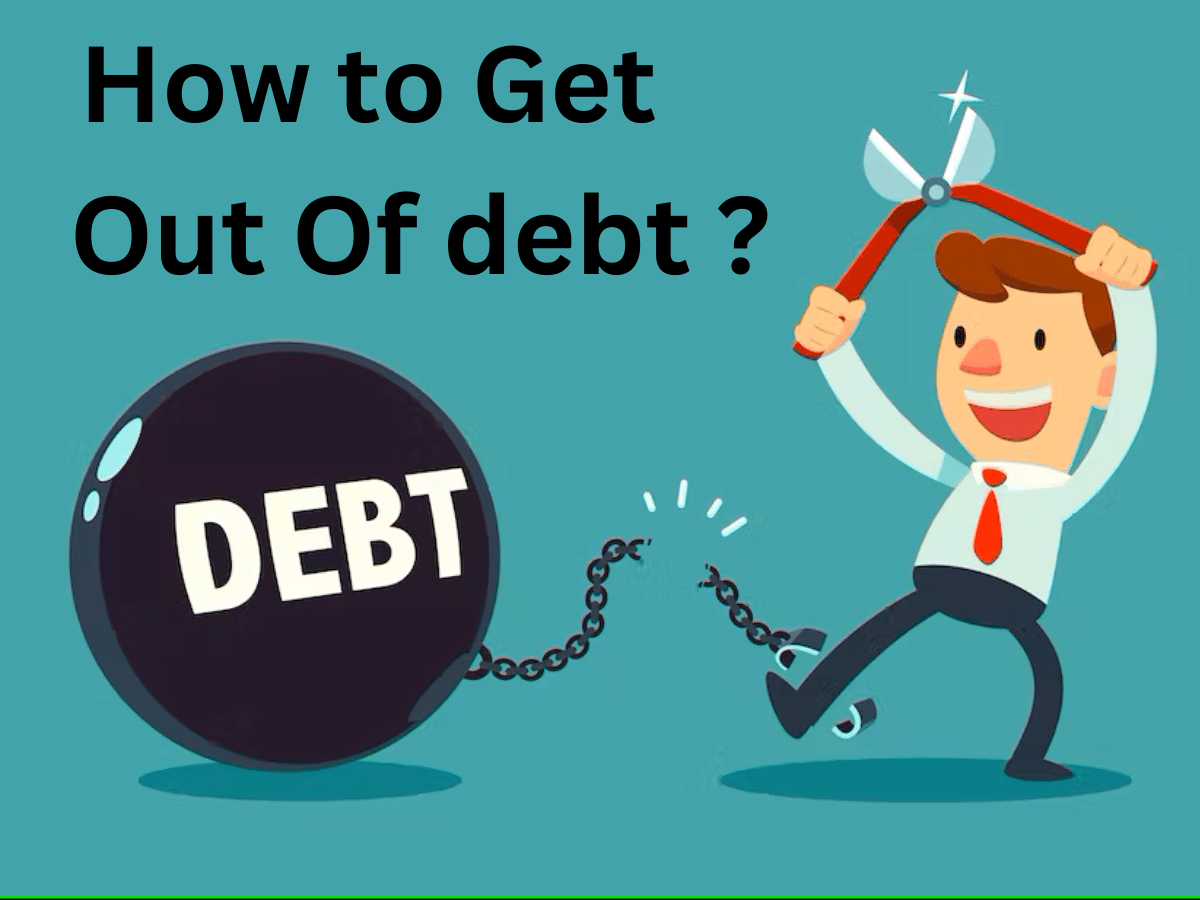Last Updated on August 31, 2023 by Manu Bhai
Let’s start to read the Article How to get out of Debt? Debt can be a burden on your finances, but it doesn’t have to be a permanent state. By taking proactive steps, you can work towards becoming debt-free. The Tips and Ideas can help you a lot.
What is Debt and How Debt Can Affect a Person’s Life?
Debt is the amount of money or other financial obligations that a person owes to a lender or creditor. This can include credit card balances, student loans, car loans, mortgages, and other forms of borrowed money. When a person borrows money, they agree to repay the lender or creditor over a set period of time with interest.
Debt can have a significant impact on a person’s life. It can cause financial stress, limit their ability to achieve their financial goals, and even affect their mental and physical health.
Some of the ways in which debt can affect a person’s life:

1. Financial stress: Debt can cause significant financial stress and anxiety, especially if a person is struggling to make payments or is facing high-interest rates. This stress can affect a person’s overall well-being, relationships, and job performance.
2. Limited financial freedom: When a person has significant debt, it can limit their ability to achieve their financial goals, such as saving for retirement, purchasing a home, or starting a business. It can also limit their ability to make major life decisions, such as changing careers or taking time off work to travel.
3. Higher interest rates: High levels of debt can lead to higher interest rates, which can make it harder to pay off the debt and result in a longer repayment period.
You should Know Some More Ways
4. Credit score impact: Late payments or defaulting on debt can negatively impact a person’s credit score, which can make it harder to access credit in the future, such as for a mortgage or car loan.
5. Relationship strain: Financial stress caused by debt can also strain relationships, especially if a person’s debt is shared with a partner or family member. It can lead to arguments, resentment, and even divorce.
In conclusion, Liability is a financial obligation that can have a significant impact on a person’s life. It can cause financial stress, limit financial freedom, result in higher interest rates, negatively impact a person’s credit score, and strain relationships. It’s important to take proactive steps to manage loan and work towards becoming debt-free to achieve financial stability and freedom.
Here are some tips on how to get free of debt:
1. Create a budget: The first step in getting out of debt is to know where your money is going. Create a budget to track your income and expenses. This will help you identify areas where you can cut back on spending and allocate more funds toward paying off your loan.
2. Prioritize your debts: Make a list of all your debts, including the amount owed and interest rate. Prioritize them by focusing on paying off high-interest debts first. This will help you save money on interest payments and reduce your overall loan faster.
3. Negotiate with your creditors: If you’re struggling to make payments, reach out to your creditors and see if you can negotiate a lower interest rate or a payment plan. They may be willing to work with you to help you get back on track.
4. Consider debt consolidation: If you have multiple high-interest loans, consolidating them into a single loan with a lower interest rate can help you save money and pay off your liability faster.
5. Look for ways to increase your income: Consider taking on a side job or freelancing to increase your income. The extra money can go towards paying off your loan faster.
Avoid taking on new Loans:
6. Avoid taking on new Loans: While you’re working on paying off your debt, avoid taking on new loan. This will only make it harder to become liability-free and can put you in a cycle of debt.
7 . Stay motivated: Getting out of debt is a long-term goal, so it’s important to stay motivated. Celebrate small milestones along the way and remind yourself why you’re working towards becoming liability-free.
Here are a few more tips
8. Cut back on unnecessary expenses: Look for ways to cut back on unnecessary expenses such as dining out, cable TV subscriptions, and expensive hobbies. Every little bit counts and can help you save money to put towards paying off your Dues.
9. Use windfalls wisely: If you receive a bonus at work, a tax refund, or an inheritance, consider using that money to pay off your debt instead of spending it on discretionary purchases. This can help you make significant progress towards becoming liability-free.
10. Seek professional help: If you’re struggling with overwhelming debt, consider seeking professional help from a financial advisor or credit counselor. They can provide personalized advice and guidance on how to get out of debt and develop a plan that works for you.
11. Stay organized: Keep track of your payments and progress towards becoming loan-free. This can help you stay motivated and on track. Consider using a loan repayment calculator to help you determine how long it will take to pay off your debt and track your progress.
12. Be patient: Becoming Loan-free is a journey, and it takes time and patience. It’s important to stay committed to your goal and make small, consistent steps toward paying off your loan amount.
In summary, getting out of debt requires a combination of discipline, planning, and patience. By cutting back on expenses, using windfalls wisely, seeking professional help, staying organized, and being patient, you can work towards becoming debt-free and achieving financial freedom. Remember, the key to success is to stay committed to your goal and keep taking small steps toward it every day.
